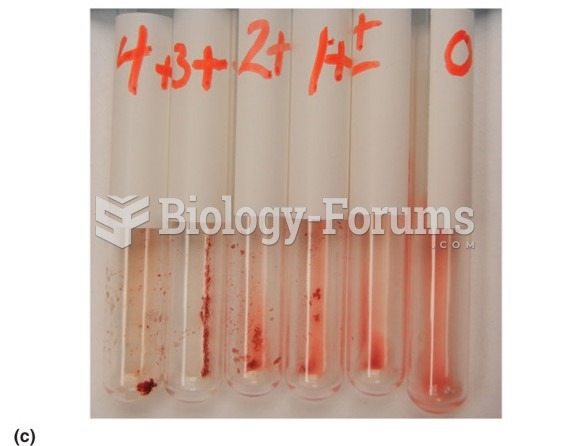|
|
|
The familiar sounds of your heart are made by the heart's valves as they open and close.
In 1886, William Bates reported on the discovery of a substance produced by the adrenal gland that turned out to be epinephrine (adrenaline). In 1904, this drug was first artificially synthesized by Friedrich Stolz.
The eye muscles are the most active muscles in the whole body. The external muscles that move the eyes are the strongest muscles in the human body for the job they have to do. They are 100 times more powerful than they need to be.
Bisphosphonates were first developed in the nineteenth century. They were first investigated for use in disorders of bone metabolism in the 1960s. They are now used clinically for the treatment of osteoporosis, Paget's disease, bone metastasis, multiple myeloma, and other conditions that feature bone fragility.
In 2012, nearly 24 milliion Americans, aged 12 and older, had abused an illicit drug, according to the National Institute on Drug Abuse (NIDA).
 Photograph taken during a laparoscopic procedure. The fundus of the uterus is visible below the prob
Photograph taken during a laparoscopic procedure. The fundus of the uterus is visible below the prob
 Immanuel Kant (1724–1804). German philosopher considered by many to be the greatest thinker of the ...
Immanuel Kant (1724–1804). German philosopher considered by many to be the greatest thinker of the ...
 The patient is placed between the X-ray tube, which emits a cone-shaped X-ray beam, and the film or ...
The patient is placed between the X-ray tube, which emits a cone-shaped X-ray beam, and the film or ...




